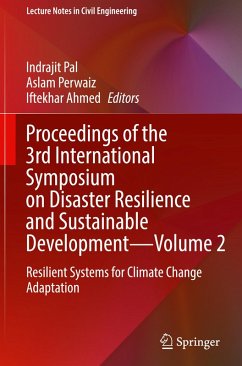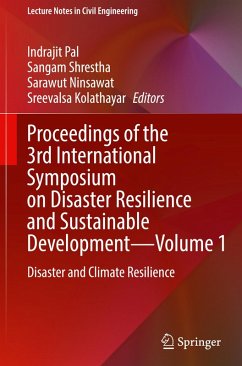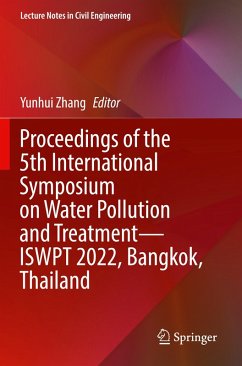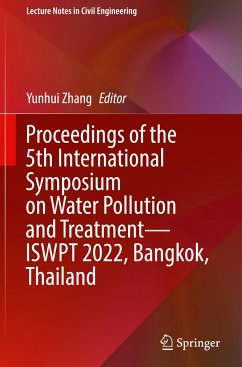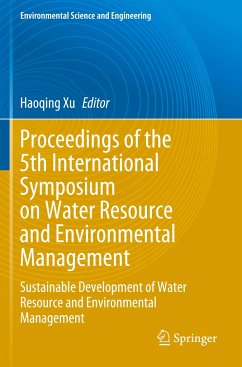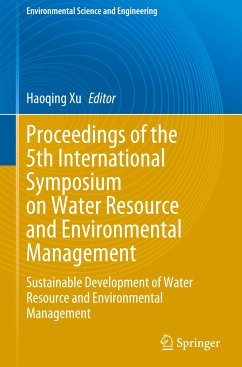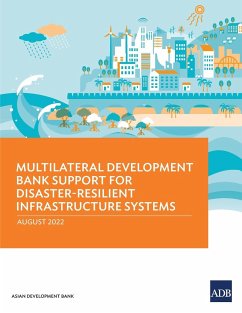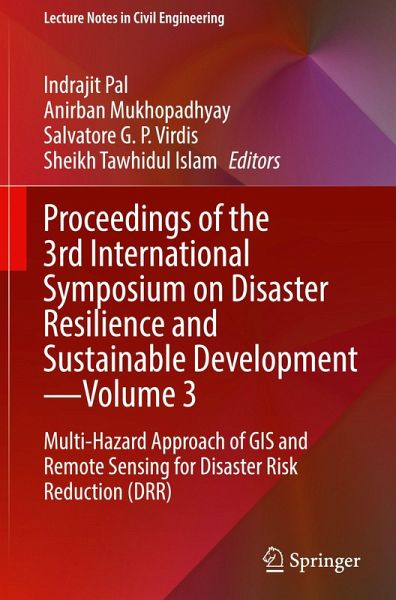
Proceedings of the 3rd International Symposium on Disaster Resilience and Sustainable Development-Volume 3
Multi-Hazard Approach of GIS and Remote Sensing for Disaster Risk Reduction (DRR)
Herausgegeben: Pal, Indrajit; Mukhopadhyay, Anirban; Virdis, Salvatore G.P.; Tawhidul Islam, Sheikh

PAYBACK Punkte
76 °P sammeln!
This book presents selected papers from the 3rd International Symposium on Disaster Resilience and Sustainable Development, organized by the Disaster Preparedness, Mitigation and Management Program of the Asian Institute of Technology, Thailand, in collaboration with academic institutions and organizations across the world. It assembles a compendium of research contributions addressing crucial topics at the nexus of science, technology, climate change, multiple hazards, and measures for fortifying resilience. This book delves into a comprehensive understanding encompassing a range of disaster ...
This book presents selected papers from the 3rd International Symposium on Disaster Resilience and Sustainable Development, organized by the Disaster Preparedness, Mitigation and Management Program of the Asian Institute of Technology, Thailand, in collaboration with academic institutions and organizations across the world. It assembles a compendium of research contributions addressing crucial topics at the nexus of science, technology, climate change, multiple hazards, and measures for fortifying resilience. This book delves into a comprehensive understanding encompassing a range of disaster management facets, including earthquakes, flooding, tropical cyclones, and the cross-disciplinary technologies devised to mitigate these catastrophes. These subjects are extensively explored within the various technical papers presented in this volume. The contents of this compilation encapsulate research findings and case studies that spotlight recent strides in the realm of disaster risk science and technology. By addressing multifaceted challenges, these contributions underscore the pursuit of sustainability and lasting resilience. The content caters to research scholars, students, industry professionals, data analytics companies, re-insurance companies, government bodies, and policymakers, who work in the field of hazard modelling and disaster management.
This book represents Volume 3 of a three-volume book series.
This book represents Volume 3 of a three-volume book series.



